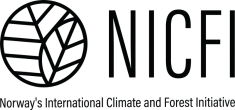Fighting wild species crime on the agenda at Anti-Money Laundering Forum
The first-ever NGO-led Anti-Money Laundering Forum in China explores how combining public-private approaches and the financial sector’s technical know-how can disrupt illegal wild species supply chains.
International wild species trade (IWT) generates billions in criminal proceeds each year. But, a ‘follow the money approach’ can help expose the chain of financial beneficiaries and identify those behind the illicit trade, creating the opportunity to recover criminal assets and halt the devastating impact of IWT on people and the planet.
We believe that our approach to tackling wildlife crime needs to grow and evolve. It is no longer enough to disrupt wildlife commodity flows; we also need to target the money that fuels these illegal operations."
Richard Scobey, Executive Director of TRAFFIC, in his opening speech.
Much could be learned from the financial sector’s technical expertise in detecting suspicious financial activities. Measures such as transaction monitoring, risk assessments, ‘big data’ analysis, and artificial intelligence can be used in money

laundering investigations for IWT cases. Such case studies were presented at the workshop to provide examples of how this can be achieved in real-world scenarios.
To indicate what to look out for and where, TRAFFIC’s AML Project Manager, Linda CHOU, shared the upcoming report, Analysis of Trafficking in China for Protected Wild Animals, Plants and Their Products from 2017 to 2021, highlighting smuggling hotspots, trafficking channels, associated payment methods used in the country’s IWT cases, and the primary financial penalties imposed.
While China Customs has a record of achievement in intercepting IWT, another critical challenge lies in investigating and adjudicating cases of money laundering crimes within the country, as presented by Deputy Prosecutor General Meiqing LU of the Beijing Procuratorate.
Illegal wild species crimes involve complex and often international financial transactions and networks, so a great emphasis was put on the vital need for targeted legislation and governance, both domestic and international, on the often overlooked money laundering aspect of IWT.
As presented by Ben Brock, Senior Wildlife Crime Analyst at TRAFFIC, financial transaction trends and vital insights can also be found by analysing the wild species smuggling channels and payment methods used in major international cases.
The need for a transnational approach to tackling IWT is what brought together nearly 70 participants representing the National Forestry and Grassland Administration (NFGA), the Anti-Money Laundering Bureau of the People's Bank of China (AMLB of PBOC), the Anti-Smuggling Bureau of the General Administration of China Customs (ASB of GACC), financial institutions, anti-money laundering and legal experts, as well as international organisations.
"China Customs has zero tolerance to wildlife trafficking and spares no effort to combat environmental crimes," said Beijing WANG, Deputy Director of the International Law Enforcement Cooperation Division of the ASB of GACC.
Experts from international organisations emphasised the power of collaboration in tackling IWT through AML measures. Organisations like the UfW Financial Task Force are instrumental in connecting financial institutions with law enforcement agencies, fostering crucial relationships for rapid information transfer and breaking institutional barriers to cooperation.
We must ensure that those involved in wildlife crime face an international response as powerful as any other serious and organised crime. Collaboration is essential, and partnerships are the key."
Rob Campbell, Head of United for Wildlife, The Royal Foundation of The Prince and Princess of Wales
This forum provided stakeholders from diverse sectors a platform to enhance awareness and capacity to apply financial approaches to combat IWT. It also presented a distinctive opportunity to foster connections and explore prospects for future cooperation.
Working together to make AML measures more commonplace rather than an outlying approach to apprehend both national and international criminals and their networks could significantly impact tackling a key driver in biodiversity loss.

About Bureau of International Narcotics and Law Enforcement Affairs (INL):

Funded by the United States Department of State Bureau of International Narcotics and Law Enforcement Affairs. The opinions, finds and conclusions stated herein are those of the authors and do not necessarily reflect those of the United States Department of State.
The mission of INL is to minimise the impact of international crime, such as money laundering and criminal gangs, and illegal drugs on the United States, its citizens, and partner nations by providing practical foreign assistance and fostering global cooperation. Visit the Bureau of International Narcotics and Law Enforcement Affairs (INL)'s website.
About Norway's International Climate and Forest Initiative (NICFI):

NICFI supports efforts to reduce greenhouse gas emissions resulting from deforestation and forest degradation in developing countries through efforts to improve forest and land management in tropical forest countries and reduce the pressure on tropical forests from global markets.





